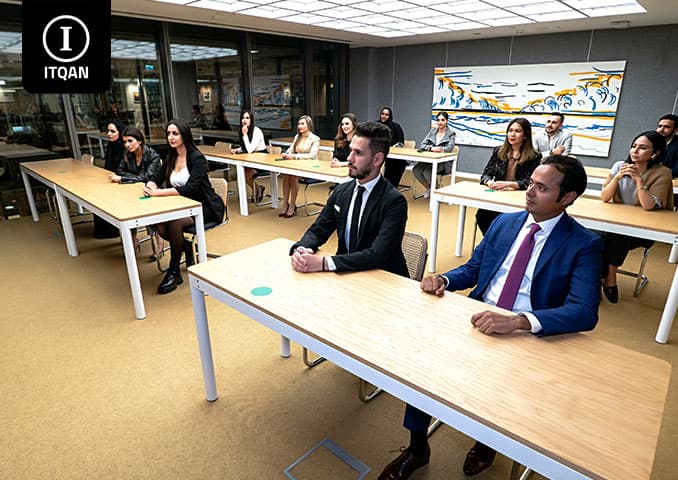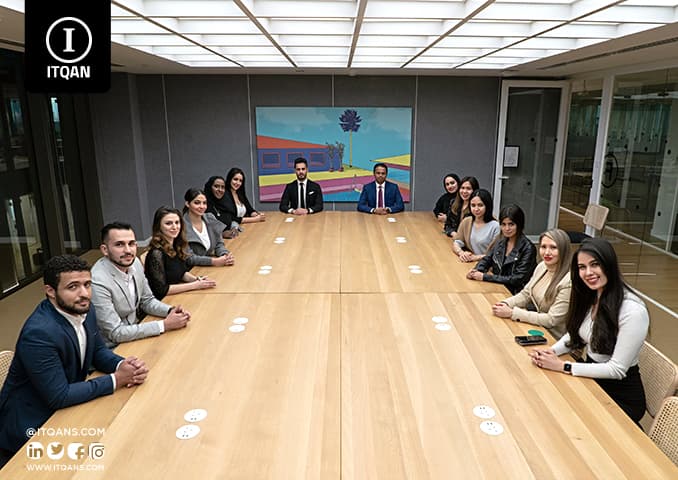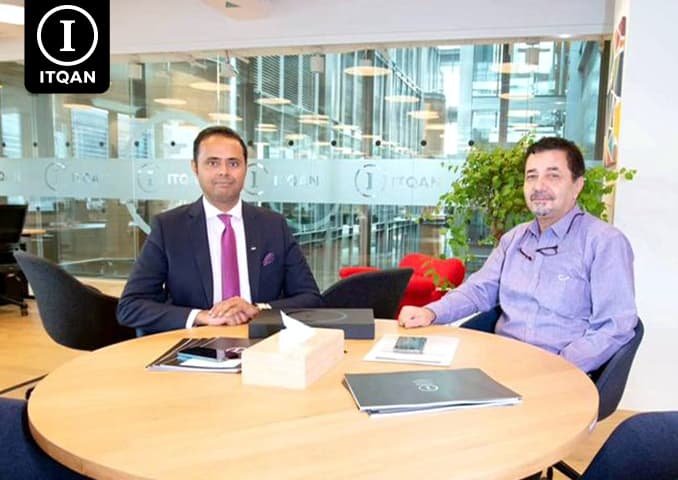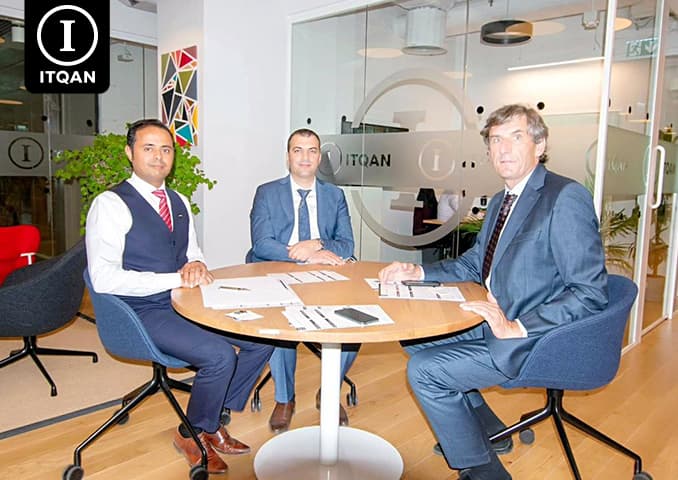Free zones in Dubai are considered one of the most prominent factors that contribute to making the emirate a global center for business and investment. Since its founding, Dubai has worked to create a flexible and innovative business environment, with free zones forming a key part of its strategy to promote economic growth and attract investors from around the world. These free zones provide unrivaled advantages for businesses, making them a preferred choice for many international businessmen and investors.
The Dubai Free Zone has a number of key advantages that contribute to enhancing its attractiveness. Among these advantages is complete exemption from taxes, including corporate taxes and value-added taxes, making it an ideal trading environment for investors. These areas also provide complete freedom in 100% ownership of companies by foreigners without the need for a local partner, which reduces the complexities of establishment and enhances commercial independence.
Moreover, the advanced infrastructure in these areas, including modern logistics facilities and commercial facilities, contribute to providing a suitable environment for growth and expansion. Licensing and registration procedures are also facilitated, which contributes to accelerating the start of business activities and reducing bureaucracy.
In addition, Dubai’s free zones provide access to vast regional and international markets thanks to their strategic location and advanced facilities. These regions are an excellent base for companies seeking to expand globally and enhance their competitiveness in the global market. In this article, we will go into more detail about the advantages and challenges that free zones in Dubai offer and how to leverage them to achieve business success.

Free zones in Dubai
جدول المحتوى
ToggleThe most prominent free zones in Dubai
In Dubai, there are several free zones that are considered major centers for investment and business. The most prominent of these free zones are:
- Jebel Ali Free Zone (JAFZA): JAFZA is considered one of the largest free zones in the world, providing advanced infrastructure, tax exemptions, and ease of establishing for various types of companies.
- Dubai Investments Free Zone (DIFC): DIFC is a prominent financial and legal centre, attracting global companies in the financial, finance and professional services sectors.
- Dubai Technology and Media Free Zone (DIC): DIC focuses on innovation and technology, providing an enabling environment for technology, media and entertainment companies.
- Dubai Aviation Free Zone (DAFZA): DAFZA is distinguished by providing logistics services and investments in the aviation sector, and supports companies related to air transport.
- Dubai World Trade Free Zone (DWTC): Located close to the Dubai World Trade Centre, DWTC provides a convenient environment for companies operating in the trade and services sectors.
- Dubai Internet and Media Free Zone (Dubai Internet City – DIC): DIC specializes in information technology, communications and digital media, and attracts leading companies in these industries.
- Dubai Media Free Zone (Dubai Media City – DMC): The DMC provides a suitable environment for companies operating in the media, advertising and media production industries.
The main benefits of investing in free zones
Investing in free zones in Dubai and the UAE in general provides several main benefits, including:
- Qualified foreign investment: Free zones allow 100% foreign ownership of companies, which attracts foreign investors.
- Exempt from customs duties and taxes: Free zones provide significant exemptions from customs duties and taxes on import and export, reducing operational costs for companies.
- Advanced infrastructure: Free zones have advanced infrastructure, including transportation and communications facilities, which facilitate international shipping and distribution operations.
- Simple management procedures: Free zones provide easy administrative procedures for establishing and managing companies, which facilitates the work of investors.
- Edit work: Free zones allow hiring foreign workers more easily compared to other regions in the Emirates.
- Access to regional markets: Thanks to their strategic location, free zones facilitate access to the markets of the Middle East and South Asia.
- Government support: The UAE government provides great support to companies in free zones by facilitating procedures and providing supportive services.
Types of companies that can be established in free zones
In the free zones of Dubai and the UAE in general, several types of companies can be established, including but not limited to:
- Limited Liability Company (LLC): A limited liability company is a common form of company in free zones, as it can be fully or partially owned by foreign investors.
- Sole Proprietorship: Free zones allow the establishment of sole proprietorships, which are owned by a single individual.
- Shareholding company: Free zones allow the establishment of joint stock companies, where individuals or companies can participate in capital and profits.
- Branch of a foreign company: Foreign companies can establish branches in free zones, which facilitates their operations in the local market.
- Free Zone Establishment: It allows individuals or companies based in free zones to establish this type of company, which enjoys some privileges and facilities.
- Investment company: Investment companies can be established in free zones to carry out investment and trade activities freely.
- IT Company: Some free zones focus on innovation and information technologies and facilitate the establishment of IT companies.
Procedures for establishing a company in a free zone
Establishing a company in a free zone in the UAE requires following a set of basic steps to ensure compliance with local laws and regulations. Here are the main procedures to follow:
1. Choosing the appropriate free zone:
The process begins by identifying the free zone that suits the nature of your company’s activity. There are many free zones in the Emirates, such as Jebel Ali, Dubai Airport Free Zone, and Ras Al Khaimah Free Zone. Each free zone offers different benefits such as tax exemptions, advanced infrastructure, and logistics services.
2. Determine the type of business activity:
You must determine the business activity that your company will undertake. Business licenses available in free zones vary based on the type of activity, such as trade, services, manufacturing, and consulting.
3. Choosing a company name:
You must choose a unique and appropriate name for your company, and it must comply with the naming rules in the free zone you choose. It is preferable to provide several options to ensure that the name is accepted by the authorities.
4. Submitting the required documents:
The required documents usually include passports of partners and shareholders, personal photos, a business plan, and an application to establish the company. Requirements may vary slightly depending on the free zone.
5. Renting an office or work space:
Most free zones require renting an office or work space within their boundaries. You can choose from a variety of offices and spaces that meet your business needs.
6. Obtaining approvals and licenses:
After submitting all required documents, the necessary approvals and licenses must be obtained from the competent authorities in the free zone. It may take some time and revisions.
7. Company registration:
Once approvals and licenses are obtained, the company must be registered with the competent authorities in the free zone. This includes paying the required fees and completing final administrative procedures.
8. Opening a bank account:
After registering the company, you can open a business bank account in a local bank to facilitate the daily financial operations of your company.
9. Completing visa procedures:
You can begin the procedures for obtaining visas for employees, as free zones provide easy procedures for obtaining work visas.
Fees related to establishing a company in free zones
Establishing a company in free zones requires paying several fees related to the establishment process, which can include:
- Registration fees: Includes the costs of registering the company and submitting the necessary applications to the responsible authorities in the free zone.
- License fees: Includes fees for issuing a commercial license, which allows the company to operate legally in the free zone.
- Office fees: Related to renting office space or facilities needed by the company in the free zone, which may include rental costs and associated services.
- Visa fees: Includes the costs of issuing work and residence visas for employees and investors who intend to work or live in the UAE.
- Notarization and documents fees: These include the costs of attesting legal documents, such as the articles of incorporation and necessary certificates.
- Administrative services fees: These may include fees for services such as submitting and renewing license applications or any other administrative services.
Areas of investment in free zones in Dubai
In the free zones in Dubai, there are various investment opportunities that include several different economic sectors, including:
- Trade and Logistics Distribution: Thanks to their prime location and advanced infrastructure, Dubai’s free zones provide an ideal environment for companies operating in the global trade and logistics distribution sectors.
- Technology and Innovation: Free zones such as the Dubai Technology and Media Free Zone (DIC) provide a suitable environment for technology and innovation companies, including information technology, smart applications, and digital innovations.
- Money and Financial Services: The Dubai Investment Free Zone (DIFC) is a leading financial center in the region, attracting international companies in the fields of financial services, banking, and insurance.
- Aviation and Air Transport: Free zones such as the Dubai Aviation Free Zone (DAFZA) provide an ideal environment for investment in the aviation sector, air transport services, and air logistics.
- Media and Entertainment: Free zones such as Dubai Media (DMC) and Dubai Internet and Media (DIC) are specialized centers in the media and entertainment industries, attracting companies in the fields of media production, advertising and digital technology.
- Retail and consumer services: Dubai’s free zones provide a suitable environment for companies operating in the retail, consumer services, hotels and hospitality sectors.
- Light and manufacturing industries: Some free zones in Dubai provide opportunities for investment in light and manufacturing industries, which include manufacturing, assembly, and packaging.
In conclusion, it is the free zone in Dubai is one of the most prominent factors that contribute to enhancing the emirate’s attractiveness as a global business and investment center. These regions have proven effective in offering a distinct business environment that provides unique advantages to companies, such as full foreign ownership, tax exemptions, and simplified administrative procedures.
Dubai offers a variety of specialized free zones that meet the needs of various economic sectors, from technology and innovation to trade and services. Through these areas, investors are able to benefit from advanced infrastructure, world-class facilities, and an extensive network of business partners.
Continuous government support and flexible legislation in free zones also contribute to facilitating establishment and operation processes, allowing companies to focus on growth and expansion. These areas also provide great opportunities for emerging and small companies, which enhances the innovation environment and encourages the development of new ideas and innovative solutions.
The most important frequently asked questions about free zones in Dubai
Do companies in free zones need an auditor?
Yes, most free zones require an annual financial audit to ensure financial compliance.
Can companies in free zones obtain multiple business licenses?
Yes, it is possible to obtain multiple licenses for different activities under the same company.
What are the obligations of companies in free zones towards local authorities?
Compliance with financial reporting, license renewal, and compliance with local regulations.
Can companies in free zones expand to other regions in the Emirates?
Yes, it is possible to expand to other regions, but this requires legal procedures and license renewal.
What are the potential additional costs of establishing a company in free zones?
Additional costs may include legal services, consulting fees, and insurance costs.
















